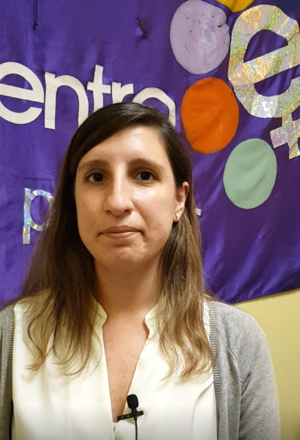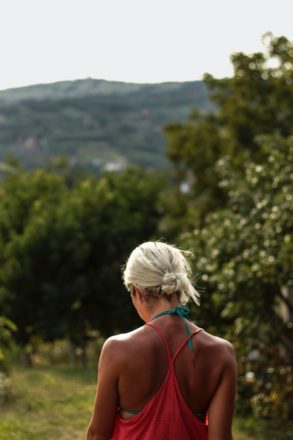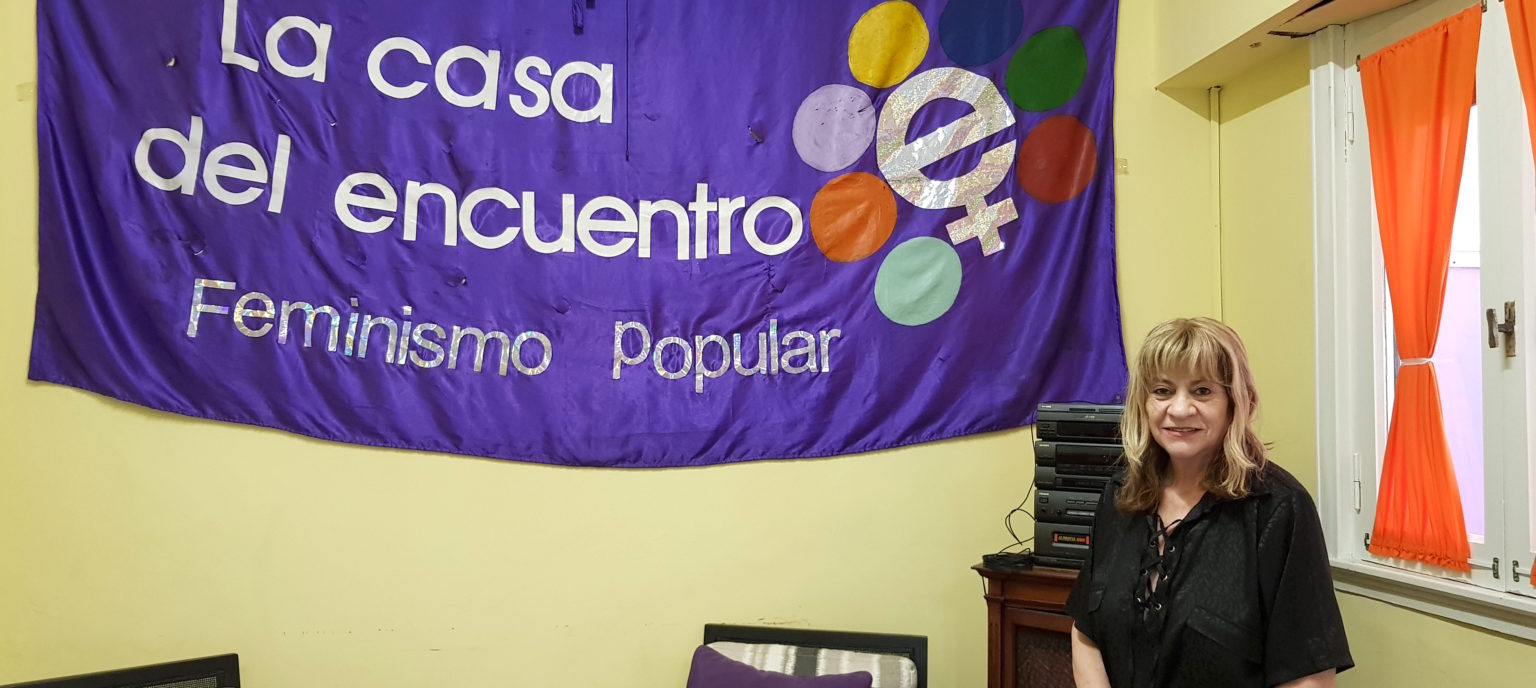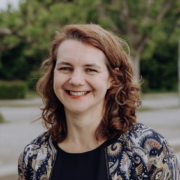The “Casa del Encuentro” is not only a contact point for victims of domestic violence, but also a meeting place for Argentinian feminists. The organisation compiled the first report on femicide in Argentina in 2008 and has taken on a pioneering role in the fight for women’s rights.
By Tamara Vogel, Buenos Aires
Women are victims of domestic violence, sexual abuse or rape. The “Casa del Encuentro” looked after almost 400 of them last year alone. The centre in the Argentinian capital is the only place of refuge for many of them. Women of all ages come here. Most of them live in poor neighbourhoods or are migrants.
The current president of the organisation, Ada Beatriz Rico, founded the “Casa del Encuentro”, which means “House of Encounter”, together with Fabiana Tuñez and Marta Montesano in 2003. While there are now many facilities for women in need in Buenos Aires that are run by the city, there are far fewer counselling centres outside the metropolis. For this reason, women from the metropolitan area of the capital also seek help at the Casa.
“Argentina now has a lot of laws at national level that protect women. However, there is a lack of proper implementation and training of employees. Since 2009, there has been a protection law to penalise violence against women, which also includes verbal violence. When a woman makes a complaint at a police station because she has been threatened by her husband with words, most police officers don’t even know that this law exists,” says Rico.
The team of the non-governmental organisation consists exclusively of women who work on a voluntary basis in various areas. The working groups deal with the implementation of laws or organise training courses for employees and interested members of the public. However, the main focus is and remains the help centre, which is open three afternoons a week and offers advice and discussions to women seeking help. The Casa relies on word of mouth and publicises the free service on social media. The centre is financed by donations.

Strengthen self-esteem
On each of the three days, a social worker, a lawyer and a psychologist look after the women. As it is always the same staff member, the aim is to build up a relationship of trust. A maximum of eight meetings are planned, which are not about therapy but about strengthening the women’s self-esteem. According to Rico, they often have the feeling of being weak. Psychologist Hilen Ottone wants to convey: “You are strong, you can do it!” The employees are not allowed and do not want to talk about their personal stories at the centre.
“We don’t tell women what they should do. We want to show them different options and give them the confidence they need to make their own decisions,” says Ottone. Co-founder Ada Beatriz Rico points out that the vast majority of women stay with their partner: “We don’t judge these decisions. Many women don’t break up because they hope their partner will change or because there are children involved.”
In addition to the work, the employees also enjoy the fact that they are among like-minded people. “I find it exciting to meet other feminists here with whom I can debate current issues. We are not just a help centre, but also a meeting place for us women,” says psychologist Ottone. Sociologist Valeria Colombo also enthuses about the special atmosphere in the centre: “We talk here about ‘sororidad’, or sisterhood among women in relation to social gender issues.”
Colombo is actually a computer scientist and has a second degree in sociology. “During my studies, I intensively studied feminist theories. After graduating, I wanted to put my theoretical knowledge into practice,“ recalls Colombo. That was in 2012. “At the time, we primarily wanted to create a meeting place for women,“ says Rico. But just one year after the opening, more and more relatives of missing women were coming to the Casa. At that time, there were hardly any state organisations that affected family members could turn to if they suspected that women trafficking was the reason for their relatives’ disappearance.
Also a contact point for victims of trafficking in women

This is a major problem in Argentina: girls and women are usually lured by criminal gangs through false promises of jobs on flyers or in social networks and often become victims of forced prostitution within the country and in neighbouring countries. In the first half of 2018, a total of 624 people in Argentina who were subjected to sexual or labour exploitation were released by the Ministry of Justice and Human Rights. The majority of these victims – 372 – were adult women with foreign nationality, mainly from Bolivia and Paraguay. “As an organisation, we wanted to get the state to take a closer look at this issue by offering help. We managed to do that,” says Rico. There is now even a free hotline that people can contact.
In addition, an increasing number of victims of domestic violence came to the centre. The most extreme outcome of which is femicide. Femicide refers to the murder of a woman because of her gender. According to the United Nations, almost 60 per cent of female murder victims worldwide were killed by a family member or partner in 2017.
The latter was also the case for Chiara Páez, for example: when the then 14-year-old was three months pregnant, her boyfriend at the time demanded that she should abort the child. When the argument escalated, the boy beat Chiara to death and buried her body in his grandparents’ garden. In September 2017, he was sentenced to 21 years in prison. This femicide was the beginning of the women’s movement “Ni una menos”, or “Not one less”, which was formed in June 2015 and later spread throughout Latin America.
The first meetings of the female journalists who launched the movement took place at the “Casa del Encuentro”, which was chosen as a neutral venue so as not to have to categorise themselves in any political direction. “Since ‘Ni una menos,’ everyone knows about the problem of femicide in the country. It used to be a topic that we only discussed among ourselves. But now it is firmly anchored in the social debate,” says sociologist Valeria Colombo. The organisation achieved the inclusion of femicide in the penal code in 2012. This means that the penalty is more severe if the motive for the murder was the gender of a woman or transgender person.
The most unsafe place is your own home
Eleven years ago, the “Casa del Encuentro” compiled the first report on femicides in Argentina. Until then, there were no official statistics. In the past, femicide in Argentina was referred to as a “crimen pasional“, i.e. a “crime of passion“. The term “violencia de genero”, i.e. “gender-specific violence“ now dominates.
The first report was a mammoth task: for a year, 35 volunteers searched 46 media outlets daily for news about murders of women. They divided the country into zones and read regional newspapers in the country’s 23 provinces as well as blogs in addition to major daily newspapers. “Of course, we were aware that this figure did not reflect reality, as there are no regional newspapers in many rural areas,” says Ada Beatriz Rico looking back. One year later, they were already analysing 250 media outlets for news about femicides. In 2015, the Supreme Court began compiling a national register of femicides in Argentina. At the same time, the “Casa del Encuentro” wanted to continue its reports and still publishes them today.
Statistics show that the most unsafe place for a woman are her own four walls. 60 per cent of femicides happen at home. In 2018, 273 women were killed in Argentina – 173 by their (ex-)partners. In comparison: in Germany, 122 women were killed by their (ex-)partners in 2018, according to the Federal Criminal Police Office. Most murders of women in Argentina occur on public holidays such as Mother’s Day or Christmas.
“These are very traditional holidays. When women take the floor here and want to have a say, many men often don’t like it,” says Rico. The number of femicides has remained constant over the years. “That will remain the case in the near future. We need a cultural change,” the organisation president believes. Computer scientist and sociologist Valeria Colombo is pinning her hopes above all on social media: “I think that Facebook and the like can help us reach more people and drive development faster.”











